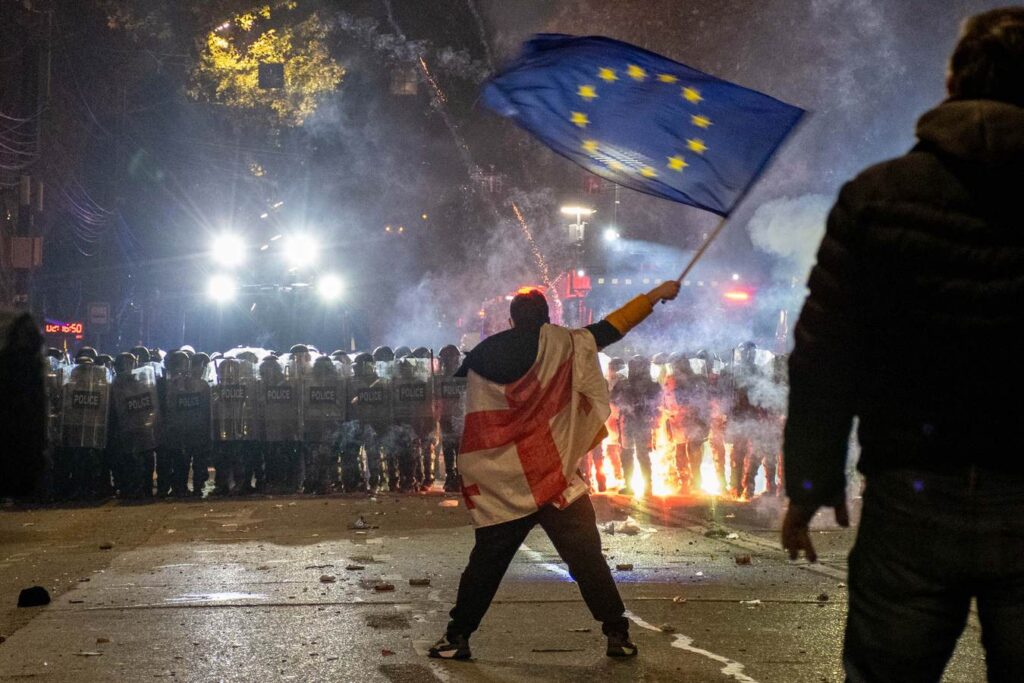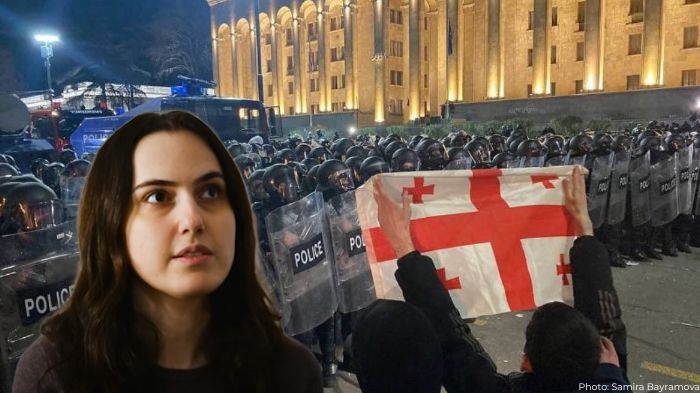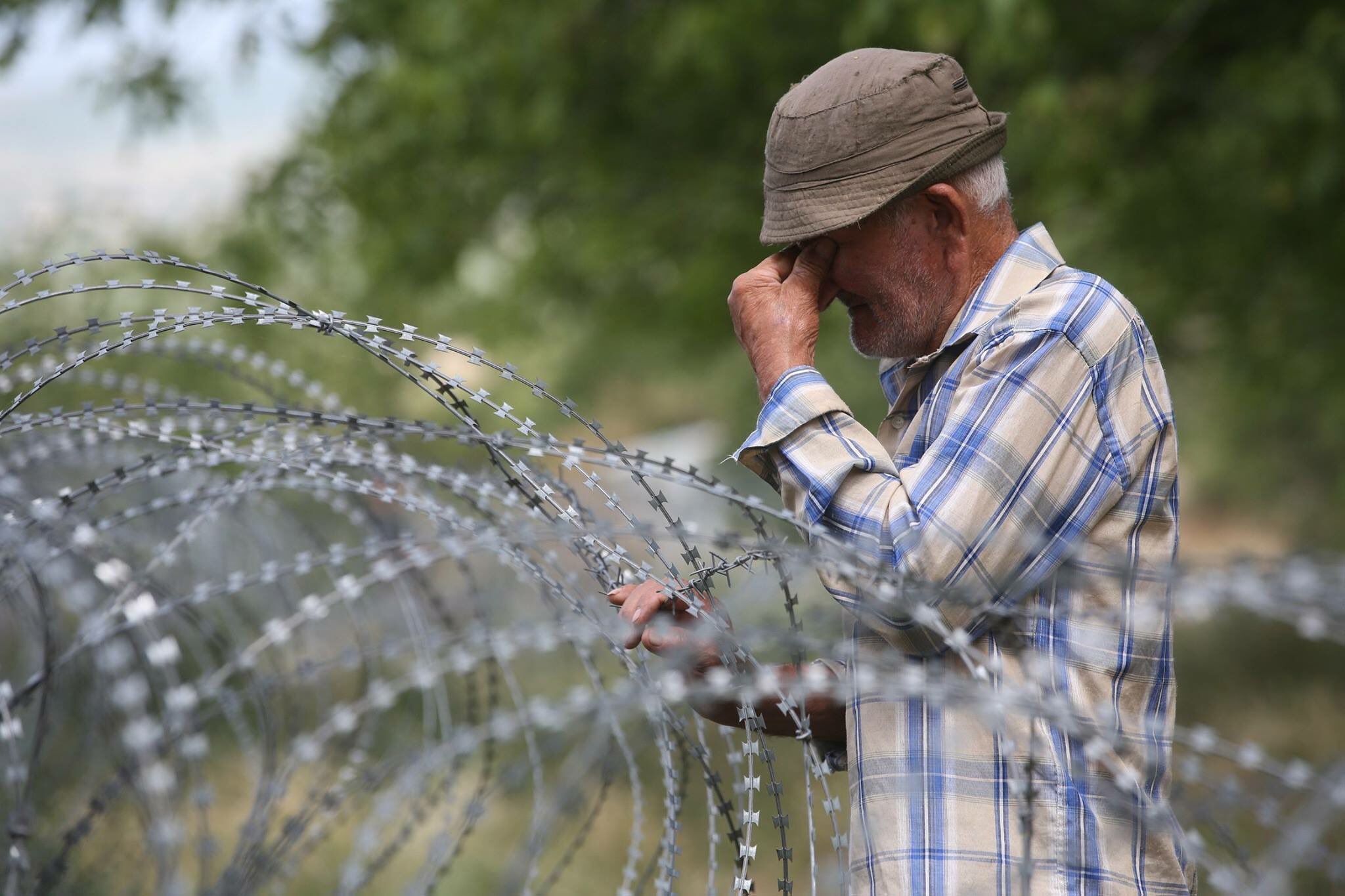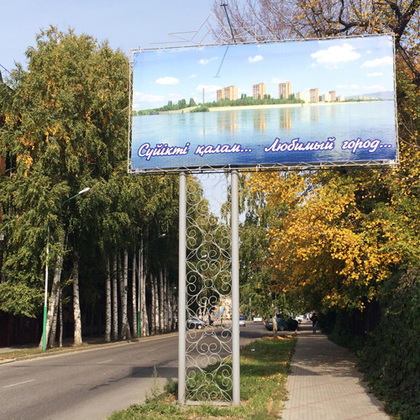Editor's note: Georgia is in turmoil: the country has been up in protests for 21 consecutive days following the pro-Russian government announcing it is suspending talks on EU accession a month after being accused of stealing an election.
Protesters defy police violence and the cold weather as the grip of the ruling pro-Russian Georgian Dream grows stronger. Using their disputed constitutional majority, they have elected a loyal anti-western president to replace Salome Zourabichvili, the country's last remaining leader carrying the torch of the Euro-Atlantic hopes of the majority of the population.
Marika Mikiashvili, a Georgian activist and academic, and member of the opposition Droa party, explains why the battle on Tbilisi's streets is existential -- both for Georgia and the future of world democracy.
EP: What sparked the recent protests in Georgia?
The main trigger was the Georgian Dream Party's announcement to halt Georgia's European accession. Georgians were deeply angry and humiliated by this decision, which was the final straw on top of existing grievances, particularly that this government had stolen elections and does not respect the will of the Georgian people.
People are angry because they don't feel represented at all. Although everyone knew the government wasn't proceeding with European integration, it still had to portray itself as pro-European because an overwhelming majority - 85% - of the Georgian population supports European integration. But suddenly, it seemed like the population's wishes didn't matter anymore.
They essentially told us, "You, the entire population, don't matter. I don't even have to pretend anymore that I want European integration." That was the humiliating part.
EP: Can you talk about the events that preceded the protests?
A month before this announcement, we had parliamentary elections with very high hopes. We thought that with the wind of change at home, with the West fed up with the Georgian Dream rule, and with their fragile grip over the security sector and the Georgian army, they might be forced to accept that the opposition -- the people of Georgia -- were winning.
However, they employed advanced methods of rigging elections and ultimately stole them. For about four weeks until the decision to halt Georgia's EU integration, a large part of the Georgian population was either confused, exhausted, or depressed. The anger didn't dissipate though. This last trigger just added to the pre-existing anger from before and especially after the stolen elections.
EP: How and why did Georgia move closer to Russia politically?
There's a combination of internal and external reasons. Externally, by 2012 when this government came to power, the United States was already disengaged from the region. The European Union never really had any comprehensive, coherent strategy for eastern enlargement and eastern neighborhood.
Internally, several factors contributed.
When Bidzina Ivanishvili came to power, he wasn't voted for as a pro-Russian candidate—he pretended to be pro-Western.
The country's terrible electoral laws played a role. For example, in 2016, they received 48% of national votes but still controlled the entire parliament and had the unilateral right to amend the constitution, thanks to the mixed-member parliamentary system.

Georgia is a hyper-centralized state—if you want to change a light bulb in some villages, you need Ivanishvili's permission. The entire state administration is governed by this one-party rule. Plus, Ivanishvili's personal wealth is significant—in 2015, according to Radio Free Europe/Radio Liberty research, he had assets worth 35% of Georgia's national GDP.
People and the political class thought we were somehow immune to further Russification because the population is so pro-Western. For this reason, many small steps that ultimately led to state capture were overlooked.
This might be the single most successful Trojan horse takeover of a country through soft power, propaganda, and ambiguity.
The Georgian Dream always pretended to be pro-European because it's impossible to rule Georgia otherwise, but they undermined the state and began unmasking themselves as pro-Russian increasingly since Russia's full-scale invasion of Ukraine. If not for the invasion, I think they would have continued with the low-intensity poisoning of Georgian society for many more decades.
EP: Why don't you want to be under Russian rule?
Whataboutists say the West is imperialist, so what's the difference between the West and Russia? One friend said that the difference is that "Russia makes you a public toilet." It's blatant, raw enslavement with no freedom, no democracy, no prosperity, and no quality of life. But the worst thing Russia does is twist mentality.
Trending Now
It's not even about the quality of life - it's about the slave mentality it instills in populations it controls. The Russian mentality, Soviet mentality, which are largely intertwined, goes against human nature. It makes people unfree.
EP: What makes these protests different from past ones?
These protests are different in two key ways.
- There's nothing to look forward to anymore - no hope in elections because every subsequent election will be rigged. We're not expecting any concessions; they need to be fully removed. Our demand is new elections, but we understand that for new elections to even be scheduled, the system needs to be broken. We need to overpower them through peaceful, nonviolent revolution.
- By day 12, the protesters aren't there to simply express emotions - they're there to express their duty. They realize they have to be there until victory. It's a very cool-headed, determined protest.
EP: What are the stakes for Georgia and the rest of the world?
For Georgia, it's everything -- decades and generations of what Georgia will be like, whether Georgia will even be a country.
Simply existing on the map isn't sufficient to guarantee independence.
For the world, Russia sees us as gatekeepers of civic freedom in Europe and possibly Central Asia, definitely in the EU environment area. If people rose up against an autocratic government and failed to succeed, and weren't helped by Western partners with every possible legal means, many more autocrats and wannabe autocrats, especially in the EU enlargement area, would be emboldened to proceed with anti-democratic laws.
For example, when Georgia adopted the foreign agents law in late May, the pro-Russian president of the Republika Srpska entity inside Bosnia and Herzegovina immediately suspended the adoption of the same foreign agents law. He's watching to see what political costs the Georgian people will pay before proceeding with more anti-democratic laws. And it's not just Dodik in Srpska and Bosnia—there are many more autocrats watching.
Q: What can partners do to help Georgia?
Our partners can impose sanctions and travel bans on regime members, their family members, and enablers. While the main fight is happening in Georgia and should be won by Georgians, the system isn't yet fully consolidated, and there are cracks. Until they can further consolidate, we should defend these cracks through targeted sanctions.
Eventually, they will be sanctioned by Western governments anyway - so why not do it now when it can actually impact the outcome?
Related:
- How Georgia’s pro-EU movement built its own intelligence network
- “Not another Russian colony”: Georgia erupts against Moscow’s shadow rule
- Georgia’s Foreign Agents law: Russia’s new frontline in its war against freedom in the world
- From Rose Revolution to “Russian Dream”: Georgia at breaking point with pivotal pro-EU protests
- Georgia’s democratic crisis deepens as thousands rally against “Russian puppet”





